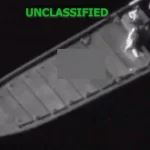
A drug trial for rectal cancer patients is attracting attention after all of the patients treated have no detectable trace of cancer.
A report on the study in the New England Journal of Medicine said that a “total of 12 patients have completed treatment with dostarlimab and have undergone at least 6 months of follow-up.”
All 12, it said, have “no evidence of tumor” in a wide variety of tests.
Standard treatment for rectal cancer involves either surgery or chemotherapy.
“At the time of this report, no patients had received chemoradiotherapy or undergone surgery, and no cases of progression or recurrence had been reported during follow-up (range, 6 to 25 months),” the report in the Journal said, noting that “longer follow-up is needed” to learn more about the results.
Dr. Luis A. Diaz Jr. of Memorial Sloan Kettering Cancer Center, an author of the study, said he knew of no other study with similar outcomes.
“I believe this is the first time this has happened in the history of cancer,” Diaz said, according to The New York Times.
Dr. Alan P. Venook, a colorectal cancer specialist at the University of California, San Francisco, who had no connection to the study, agreed.
Do you think one day we will have effective cures for cancer?
Yes: 0% (0 Votes)
No: 0% (0 Votes)
Full remission in all patients tested is “unheard-of,” he said.
“There were a lot of happy tears,” said Dr. Andrea Cercek, an oncologist at Memorial Sloan Kettering Cancer Center and a co-author of the paper.
Venook said the lack of complications from the drug was a surprise, saying “either they did not treat enough patients or, somehow, these cancers are just plain different.”
The drug dostarlimab is part of a group of drugs called checkpoint inhibitors. The drug essentially unmasks cancer cells, so the body’s immune system can then destroy them.
The drug was taken every three weeks for six months.
Dr. Hanna K. Sanoff of the University of North Carolina’s Lineberger Comprehensive Cancer Center, called the study “small but compelling” in an editorial published by the Journal.
“Very little is known about the duration of time needed to find out whether a clinical complete response to dostarlimab equates to cure,” she wrote.
Dr. Kimmie Ng, a colorectal cancer expert at Harvard Medical School, said the trick now is to have what Ng called “remarkable” and “unprecedented” results to be replicated, the Times reported.
Initially a small biotechnology firm, Tesaro, sponsored the study. That company was purchased by GlaxoSmithKline.








